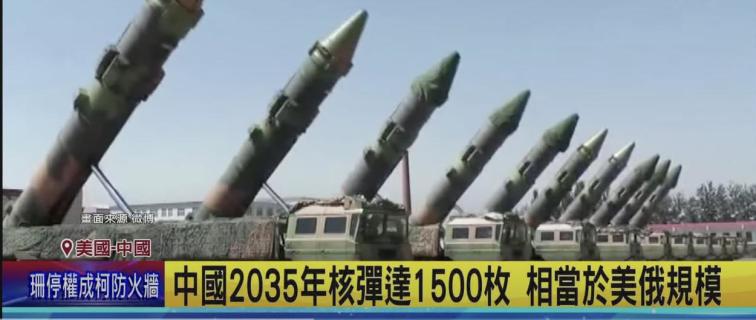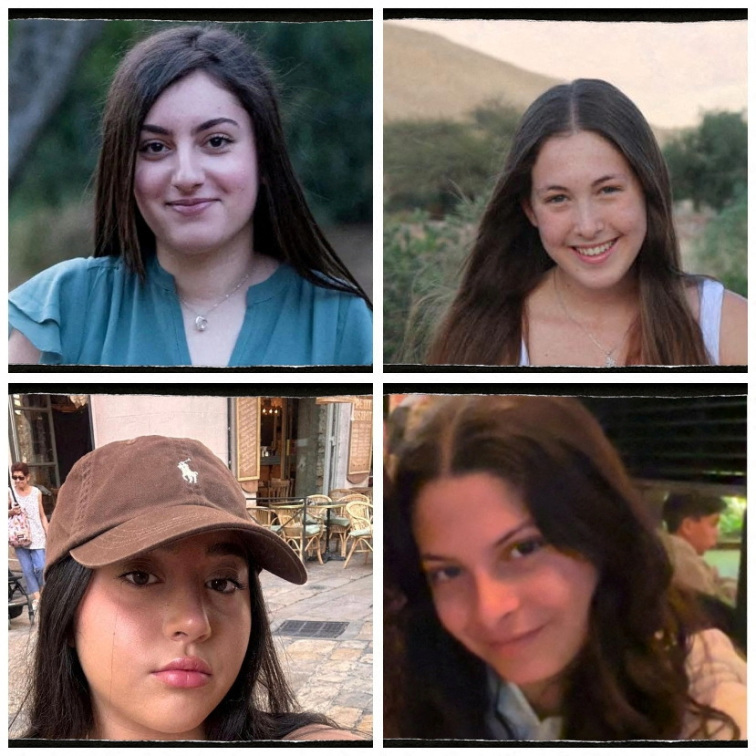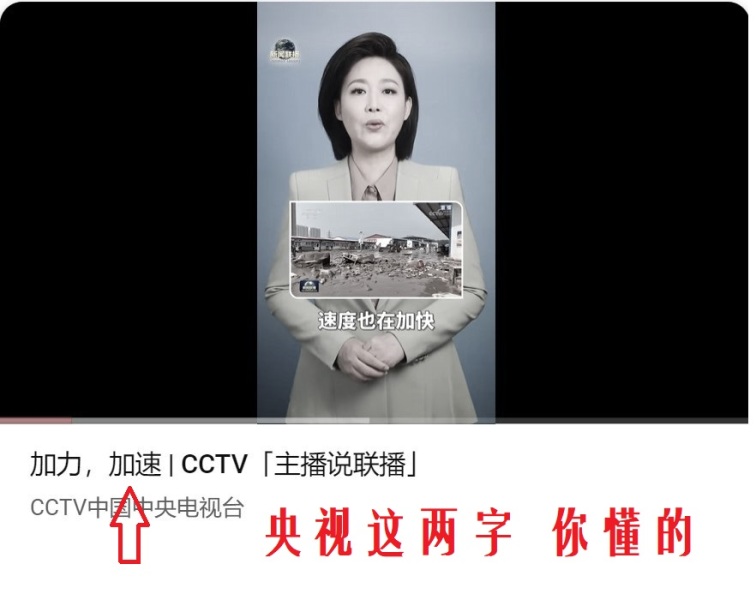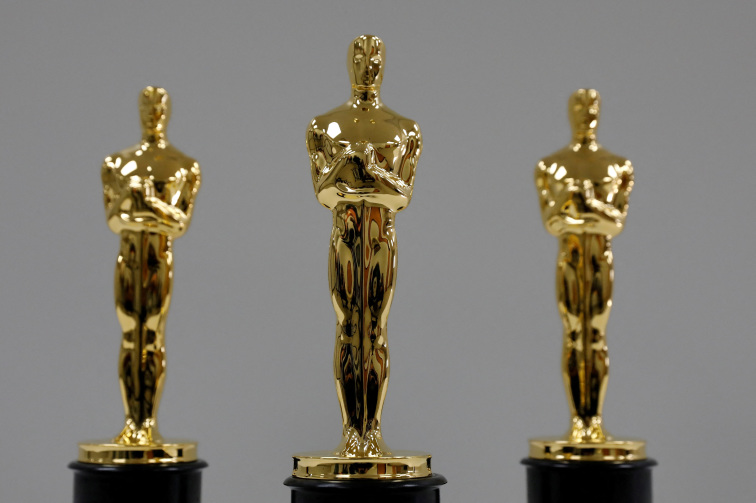Illustration: Intense infighting within Xi Jinping’s central leadership and the military. (Image by People News)
People News - According to journalist Li Muyang, an insider from within the Chinese Communist Party (CCP) recently provided him with an exclusive tip-off. The source claimed that CCP leader Xi Jinping suffered another stroke on the third day of the Lunar New Year. He was subsequently treated at Peking Union Medical College Hospital’s "Shuai Fu" (Marshal’s Residence) by the highest-level medical team using the most advanced treatments, allowing him to reappear in public. This incident brings to mind Xi’s first reported stroke in July last year. At the time, there were widespread rumors that senior officials in Zhongnanhai, in collaboration with the military and other factions, had planned to temporarily replace him. However, Xi quickly "recovered," leading to a power balance among the factions within Zhongnanhai. The result was a form of collective leadership in which Xi's authority was significantly weakened.
Subsequent CCP actions, public statements, and the sidelining or removal of Xi’s loyalists have led external observers to conclude that Xi’s loss of power is a logical outcome.
Now, with fresh rumors of Xi’s latest stroke circulating, the unusual behavior of Ding Xuexiang—ranked sixth in the Politburo Standing Committee and China’s First Vice Premier—has drawn public attention. Some political analysts speculate that a power struggle for succession has already begun within Zhongnanhai and that Ding’s ambition to become the "next Hua Guofeng" may have put him in jeopardy.
Ding Xuexiang Did Not Go to Paris
On February 7, China's Foreign Ministry announced that Zhang Guoqing, a member of the CCP Politburo and a Vice Premier, would represent Xi Jinping at the AI for Good Global Summit in Paris from February 9 to 12. However, what was unusual was that just days earlier, foreign media had reported that Ding Xuexiang would attend the summit, especially since AI policy falls under his official responsibilities.
A leaked document outlining the work divisions of China’s new State Council leadership confirms that Ding Xuexiang is responsible for development and reform, education, science and technology, finance, environmental protection, taxation, statistics, and intellectual property. In contrast, Zhang Guoqing is in charge of industry and information technology, emergency management, state-owned assets supervision, and market regulation. Based on these responsibilities, it would have been logical for Ding Xuexiang to attend the Paris summit. His absence and Zhang Guoqing’s sudden assignment to the event have therefore raised eyebrows.
In addition, Ding Xuexiang has actively engaged with AI-related topics in the past. On January 21, during the World Economic Forum 2025 Annual Meeting in Davos, he spoke about AI and technological innovation. Similarly, on November 20, 2024, at the World Internet Conference in Wuzhen, he discussed AI breakthroughs and called for international cooperation in building a "shared future in cyberspace."
Given his portfolio and past involvement in AI policy, why was Ding Xuexiang suddenly replaced by Zhang Guoqing at an event where he would have had the opportunity to meet U.S. Vice President J.D. Vance?
Analysis of the Situation
In mid-December last year, Jiang Wangzheng, a self-proclaimed “imperial consort” and the nephew of Yao Zuoting (former first deputy director of the Zhejiang Provincial Development and Reform Commission who is now residing in Australia), revealed that Ding Xuexiang had been suspended from all duties as of December 20, 2024. This claim was detailed in an article published on December 22, 2024, titled "Zhongnanhai Has Stirred a Hornet’s Nest – Ding Xuexiang Reportedly Suspended."
Yao Zuoting was affiliated with Xi Jinping’s faction, known as the Xi Jinping Army (习家军). Jiang Wangzheng, formerly an assistant president at Ping An Bank’s Hangzhou branch, comes from a notable lineage—his grandfather, Jiang Yongcheng, was a member of the Chiang Kai-shek family. Between 2008 and 2014, Jiang served as Yao’s trusted aide in Zhejiang’s political circles and secretly accumulated a vast collection of insider information. Jiang introduces himself online as an expert on Xi Jinping’s governance in Fujian and Zhejiang, a specialist on Premier Li Qiang, and a member of the "Zhijiang New Army" (a term referring to officials Xi promoted during his tenure in Zhejiang). Many of his leaks about CCP internal affairs have reportedly been corroborated by later events, as noted by journalist Li Muyang.
On December 18–19, 2024, Xi Jinping attended the 25th anniversary of Macau’s handover to China and the inauguration of Macau’s sixth-term government. As the head of the CCP’s Hong Kong and Macau Affairs Leadership Group, Ding Xuexiang would have been expected to accompany Xi, but he was noticeably absent.
Ding later made several public appearances to dispel speculation. However, subtle yet telling signs emerged: January 27, 2025: During a Lunar New Year gathering, the Xinhua News Agency published a group photo where Ding Xuexiang, standing in the back row, appeared intentionally blurred. January 26, 2025: At a meeting hosted by Premier Li Qiang with foreign experts, the official group photo showed all key attendees, including Foreign Minister Wang Yi, facing forward. Ding, however, was only shown in profile. February 5, 2025: Ding attended the seventh plenary meeting of the State Council, chaired by Premier Li Qiang. This was the last time he was seen in public. February 7, 2025: Ding failed to attend the opening of the 9th Asian Winter Games in Harbin, an event where his presence would have been expected.
Such omissions are unlikely to be accidental media mistakes or incompetence. According to CCP internal norms, when a high-ranking official is deliberately downplayed or excluded from media coverage, it often signals serious political trouble.
Political analyst Zhou Xiaohui believes that as Xi Jinping’s former Chief of Staff and one of his closest confidants, Ding Xuexiang had deep knowledge of Xi’s inner workings. Following Xi’s first stroke in July 2024 and the subsequent weakening of his authority, it remains unclear whether Ding remained loyal to Xi or if he defected to another faction. Either way, if Ding is indeed in trouble, it is not entirely unexpected—in the brutal world of CCP politics, anyone who rises to the top inevitably compromises their integrity. This also suggests that the internal power struggle within the CCP is still ongoing, possibly as part of an effort to further weaken Xi’s inner circle.
Rumors That Ding Xuexiang Wanted to Be the “Next Hua Guofeng”
Ding Xuexiang has long been rumored to harbor ambitions to succeed Xi Jinping. Allegedly, Ding was hoping that Xi, before his death, would designate him as his successor, much like Mao Zedong handpicked Hua Guofeng before his passing. When Xi suffered his first stroke, there were already reports that Zhongnanhai elites were debating who should temporarily assume leadership. One of the rumored contingency plans involved Ding Xuexiang stepping in as acting leader during the Fourth Plenary Session of the 20th Central Committee, as this session traditionally focuses on Party governance and leadership succession.
However, the Fourth Plenary Session has now been delayed for nearly six months, suggesting that power struggles within the CCP have escalated to a breaking point. On January 16, 2025, Nikkei Asia senior correspondent Katsuji Nakazawa wrote that factional infighting within the CCP has become increasingly intense and that major political upheaval could erupt in Beijing this year as the Party finalizes its leadership lineup for the next term.
Given this backdrop, it would be strategically logical for rival factions to eliminate Ding early before the power transition is finalized.
According to Jiang Wangzheng, Ding Xuexiang’s downfall is linked to the corruption case of Zhu Zhison: Zhu Zhison was a CCP official with ties to China’s military-industrial sector. He was Shanghai Municipal Committee member, Pudong District Party Secretary, and a delegate to the 13th National People’s Congress. Zhu had strong ties to Jiang Zemin’s son, Jiang Mianheng, and previously oversaw Shanghai Aerospace Bureau operations. On November 27, 2024, Zhu was placed under investigation by the CCP’s Central Commission for Discipline Inspection (CCDI) for serious violations of Party discipline and law. His case was reportedly part of a broader anti-corruption campaign targeting China’s defense and aerospace industries. Jiang Wangzheng claims that evidence linking Ding Xuexiang to Zhu’s corruption scandal was placed directly on Xi Jinping’s desk. Zhu was a protégé of Han Zheng, a former Shanghai Party Secretary and Vice Premier. Han Zheng and Ding Xuexiang both rose through Shanghai’s political ranks—Ding was Xi Jinping’s personal secretary when Xi was Party Secretary of Shanghai. If Xi refuses to protect Ding, it could mean that either his authority has weakened and he is unable to shield his ally, or he is sacrificing Ding to appease rival factions. CCP history is rife with betrayals and political purges—from Mao purging Peng Dehuai, to Deng Xiaoping sidelining Zhao Ziyang, and Jiang Zemin abandoning Chen Xitong. If Ding Xuexiang is indeed being removed, it would not be surprising.
Another theory suggests that Ding Xuexiang was the political backer of Yu Jianhua, the former director of China’s General Administration of Customs. Yu died under suspicious circumstances on December 10, 2024—official reports claim he suddenly "collapsed" in his office, but rumors suggest he committed suicide after being questioned by the CCDI.
Independent commentator Cai Shenkun stated on the X platform that Yu Jianhua’s rise to power was closely linked to Ding Xuexiang, as both were from Jiangsu province. He claimed that projects under the General Administration of Customs generated enormous profits each year, which were funneled to individuals connected to Ding Xuexiang. In other words, Ding was likely held accountable by anti-Xi factions through Yu Jianhua’s case.
Under the CCP’s atheist and oppressive dictatorship, anything is possible. The regime is a source of chaos that opposes human nature and natural order—anyone who becomes entangled in it walks on thin ice and risks being dragged under. Ding Xuexiang’s absence from the Paris summit and the unusual media coverage could be signs of his downfall. However, until official confirmation emerges, the CCP may continue to deny or obscure the situation. Regardless of the outcome, one thing remains clear: staying away from the CCP, refusing to be part of its corrupt system, and not serving its interests is the key to maintaining one's integrity and safety.








News magazine bootstrap themes!
I like this themes, fast loading and look profesional
Thank you Carlos!
You're welcome!
Please support me with give positive rating!
Yes Sure!